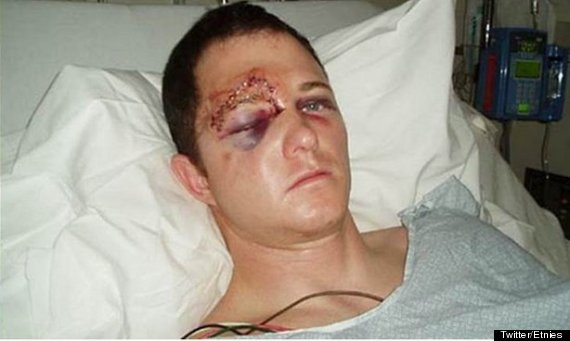Watch out Harry Potter, you are not the only wizard with an invisibility cloak.
Scientists at the University of Rochester have discovered a way to hide large objects from sight using inexpensive and readily available lenses, a technology that seems to have sprung from the pages of J.K. Rowling's Harry Potter fantasy series.
Cloaking is the process by which an object becomes hidden from view, while everything else around the cloaked object appears undisturbed.
"A lot of people have worked on a lot of different aspects of optical cloaking for years," John Howell, a professor of physics at the upstate New York school, said on Friday.
New York scientists unveil 'invisibility cloak' to rival Harry Potter's
Warren Commission Experts To Reveal Secrets of JFK Murder, Cover-up at Sept. 26-28 DC Conference
Washington, DC — Forty-four prominent authors, medical doctors, academics, lawyers and other research experts convene from Sept. 26 to 28 to reveal recent findings undercutting the Warren Commission’s 1964 report ascribing President Kennedy’s murder to a sole assassin.
On the unique, historic occasion of the Warren report’s 50th anniversary, experts and surviving witnesses will examine evidence showing the commission was wrong about its core finding, that Lee Harvey Oswald acted alone in killing the president with three shots from behind. Polls for decades have shown that most Americans – sometimes more than 70 percent – disbelieve the commission, which was chaired by the late Supreme Court Chief Justice Earl Warren.
“Few serious scholars believe the Warren Report any longer,” said Assassinations Archives and Record Center President James Lesar, whose non-profit group AARC has organized what he called, “one of the most important JFK assassination conferences in history.”
Panera: Please don't bring your guns into our restaurants
 Panera Bread is joining other restaurants in asking its customers not to bring their guns into their casual dining locations, said the company Monday.
Panera Bread is joining other restaurants in asking its customers not to bring their guns into their casual dining locations, said the company Monday.
"The request is simply we recognize everyone's rights," said Panera CEO Ron Shaich. "But we also recognize that we are building communities in our cafes and are where people come to catch a breath."
Israel to build 283 homes on West Bank
 has published tenders to build 283 homes in a West Bank settlement, days after announcing its biggest land grab on occupied Palestinian territory for three decades.
has published tenders to build 283 homes in a West Bank settlement, days after announcing its biggest land grab on occupied Palestinian territory for three decades.The expansion of the Elkana settlement, in the north-west of the West Bank, was approved in January and the tenders were published on Thursday, Israel's land authority said.
It came after Israel announced its biggest land grab in the West Bank since the 1980s, saying it planned to expropriate 400 hectares (988 acres) of land in the south of the territory, between Bethlehem and Hebron.
More...
Bogus Photo Does Not Show Ferguson Cop Darren Wilson's Injuries; It's Not Even Him
 Unarmed teen Michael Brown was fatally shot by officer Darren Wilson in Ferguson, Missouri, on Aug. 9, but the circumstances leading up to his death remain unclear. Though Ferguson police have said that Wilson's face was injured in an altercation with Brown moments before the shooting, Wilson has yet to come forward and speak publicly.
Unarmed teen Michael Brown was fatally shot by officer Darren Wilson in Ferguson, Missouri, on Aug. 9, but the circumstances leading up to his death remain unclear. Though Ferguson police have said that Wilson's face was injured in an altercation with Brown moments before the shooting, Wilson has yet to come forward and speak publicly.
On Tuesday, Chicago firefighter Kevin O'Grady shared a Facebook photo he claimed showed a injured Wilson in the hospital after the incident. As it turned out, the man pictured is not Darren Wilson, but that didn't stop the image from going viral.
Labor Day stems from deadly labor strike, but few Americans know the history
Monday is the day to celebrate the American worker and his sacrifices and economic and social achievements. You do know that, right?
If you don’t, you’re not alone. Few recall the bloodstained origins of this holiday as we fire up the grill, throw on the burgers and dogs and turn on the U.S. Open tennis or maybe the Yanks, Mets or another ballgame.
And, in a sign of the times, the Sunday morning network news shows didn’t even offer their usual, token pre-Labor Day weekend spot for the head of the nation’s labor movement.
Utah fracking fine highlights wastewater pond threat
When fracking causes controversy, it’s often because of wells — either the ones used to inject chemicals and water into the ground to break up gas-rich shale rock or the ones used to dispose of all the waste and water left over from the injection process.
Often overlooked is a another way to dispose of that waste: massive surface ponds in which fracking water is stored until it can be recycled or buried or is left to slowly evaporate. Those ponds, which can grow to several acres in size, dot the landscapes of virtually every state that produces natural gas.
More Articles...
Page 33 of 173

 Special Interest Glance
Special Interest Glance






























